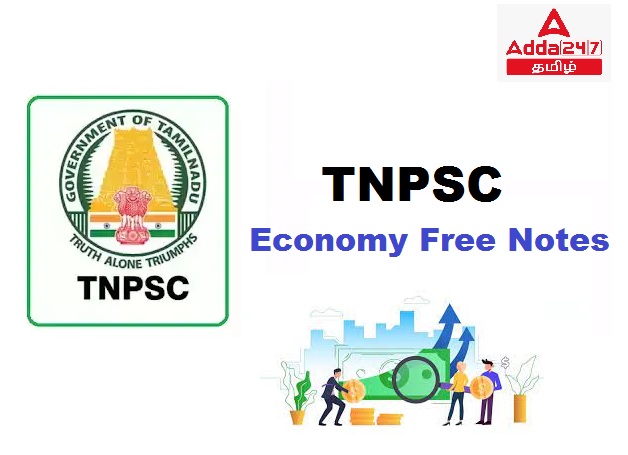இந்தக் கட்டுரையில், TNPSC குரூப் 1, குரூப் 2, குரூப் 2A, குரூப் 4 மாநிலப் போட்டித் தேர்வுகளான TNUSRB, TRB, TET, TNEB போன்றவற்றுக்கான முறைகள் இலவசக் குறிப்புகளைப் பெறுவீர்கள்.தேர்வுக்கு தயாராவோர் இங்குள்ள பாடக்குறிப்புகளை படித்து பயன்பெற வாழ்த்துகிறோம்.
Resource Sharing Between Union and States
Union Revenue Sources
Corporation tax.
Currency, coinage and legal tender, foreign exchange.
Duties of customs including export duties.
Duties of excise on tobacco and certain goods manufactured or produced in
India.
Estate duty in respect of property other than agricultural land.
Fees in respect of any of the matters in the Union List, but not including any fees
taken in any Court.
Foreign Loans.
Lotteries organized by the Government of India or the Government of a State.
Post Office Savings Bank.
Posts and Telegraphs, telephones, wireless, Broadcasting and other forms of
communication.
Property of the Union.
Public Debt of the Union.
Railways.
Rates of stamp duty in respect of Bills of Exchange, Cheques, Promissory Notes,
etc.
Reserve Bank of India.
Taxes on income other than agricultural income.
Taxes on the capital value of the assets, exclusive of agricultural land of
individuals and companies.
Taxes other than stamp duties on transactions in stock exchanges and future
markets.
Taxes on the sale or purchase of newspapers and on advertisements published
therein.
Terminal taxes on goods or passengers, carried by railways, sea or air.
State Sources
Capitation tax.
Duties in respect of succession to agricultural land.
Duties of excise on certain goods produced or manufactured in the State, such as
alcoholic liquids, opium, etc.
Estate duty in respect of agricultural land.
Fees in respect of any of the matters in the State List, but not including fees taken
in any Court.
Land Revenue.
Rates of stamp duty in respect of documents other than those specified in the
Union List.
Taxes on agricultural income.
Taxes on land and buildings.
Taxes on mineral rights, subject to limitations impose by Parliament relating to
mineral development.
Taxes on the consumption or sale of electricity.
Taxes on the entry of goods into a local area for consumption, use or sale therein.
Taxes on the advertisements other than those published in newspapers.
Taxes on goods and passengers carried by road or on inland waterways.
Taxes on vehicles.
Taxes on animals and boats.
Taxes on professions, trades, callings and employments.
Taxes on luxuries, including taxes on entertainments, amusements, betting and
gambling.
Tolls.
Taxes Levied and Collected by the union but Assigned to the States (Art.269)
Duties in respect of succession to property other than agricultural land.
Estate duty in respect of property other than agricultural land.
Taxes on railway fares and freights.
Taxes other than stamp duties on transactions in stock exchanges and future
markets.
Taxes on the sale or purchase of newspapers and on advertisements published
therein.
Terminal taxes on goods or passengers carried by railways, sea or air.
Taxes on the sale or purchase of goods other than newspapers where such sale
or purchase takes place in the course of inter-State trade or commerce.
Duties levied by the Union but collected and Appropriated by the states (Art.268)
Stamp duties and duties of excise on medicinal and toilet preparation (those
mentioned in the Union List) shall be levied by the Government of India but shall be
collected.
In the case where such duties are leviable within any Union territory, by the
Government of India.
In other cases, by the States within which such duties are respectively leviable.
Taxes which are Levied and Collected by the Union but which may be Distributed between the
Union and the States (Arts.270 and 272)
Taxes on income other than agricultural income.
Union duties of excise other than such duties of excise on medicinal and toilet
preparations as are mentioned in the Union List and collected by the Government
of India.
“Taxes on income” does not include corporation tax.
The distribution of income-tax proceeds between the Union and the States is made on
the recommendations of the Finance Commission.
Local Finance
Local finance refers to the finance of local bodies in India.
There is a large variety of local bodies in India.
We have the following main four local bodies which are functioning today in our
country.
Types of Local Bodies:
Village Panchayats
District Boards or Zila Parishads
Municipalities
Municipal Corporations
Village Panchayats
Establishment
The jurisdiction of a panchayat is usually confined to one revenue village. In some
cases, though not very frequently, two or more small villages are grouped under one
panchayat.
The establishment of panchayat raj is the avowed policy of most states in India.
Functions
The functions of panchayats range over a wide area including civil, economic, and so
on. Thus small disputes may be disposed of by panchayats on the spot.
Roads, primary schools, village dispensaries, etc. are to be managed by panchayats.
The supply of water, both for drinking and irrigation, falls within their field of
responsibility, and in some cases farming, marketing, storage, etc. are entrusted to
them.
Sources of revenue of Village Panchayats
The following are the sources of revenue of village panchayats.
o General property tax
o Taxes on land
o Profession tax
o Tax on animals and vehicles.
o Other taxes include service tax, octroi, theatre tax, pilgrim tax, tax on marriage,
tax on birth and deaths, and labour tax.
As a matter of fact, taxes are levied by the panchayats only with the sanction of the
state government, and there are certain limits in respect of tax rates which have to
be observed.
District Boards or Zila Parishads
Establishment
In rural areas, district boards or Zila Parishads are established at district level. The
territorial jurisdiction of a district board is generally a revenue district.
Functions
In Tamil Nadu, the Zila Parishad is a co-ordinating body that exercises general
supervision over the working of Panchayat Samitis and advises them on implementation
of Development Schemes.
Sources of revenue of District Boards
Grants-in-aid from the state government.
Land Cesses.
Toll, fees etc.
Income from the property and loans from the state governments.
Grants for the centrally sponsored schemes relating to development work.
Income from fairs and exhibitions.
Property tax and other taxes which the state governments may authorise the district
boards.
Municipalities
Establishment and Functions
The municipalities are bodies or institutions which are established in urban areas for
looking after local affairs such as, sanitation, public health, local roads, lighting,
water supply, cleaning of streets, maintenance of parks and gardens, maintenance
of hospitals, dispensaries and veterinary hospitals, provision of drainage, provision
of primary education, organising of fairs and exhibitions etc.
However, all these functions are performed subject to the control of the state
government.
Sources of revenue of municipalities
taxes on property
taxes on goods, particularly octroi and terminal tax
personal taxes, taxes on profession, trades and employment
taxes on vehicles and animals
theatre or show tax, and
Grants-in-aid from the state government.
Municipal Corporations
Establishment and Functions:
The municipal corporations have wide powers and enjoy greater freedom as
compared to municipalities.
The municipal corporations are usually entrusted with the functions, such as water
supply and drainage, lighting, roads, slum clearance, housing and town planning etc.
The rapid increase in the population of cities has definitely added to the functions of
municipal corporations.
Sources of revenue of Corporations
tax on property,
tax on vehicles and animals,
tax on trades, calling and employment,
theatre and show tax,
taxes on goods brought into the cities for sale,
taxes on advertisements,
octroi and terminal tax etc.
The corporations have a fair degree of freedom in respect of their choice and
modification of these taxes, subject to the maximum and minimum rates laid down
by the law.
**************************************************************************
| Adda247 TamilNadu Home page | Click here |
| Official Website=Adda247 | Click here |




